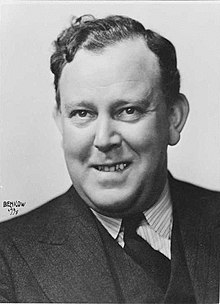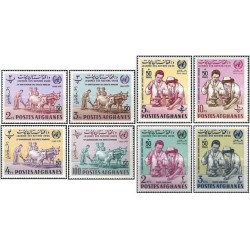- جدید
- ناموجود



توجه : درج کد پستی و شماره تلفن همراه و ثابت جهت ارسال مرسوله الزامیست .
توجه:حداقل ارزش بسته سفارش شده بدون هزینه پستی می بایست 100000 ریال باشد .
توجه : جهت برخورداری از مزایای در نظر گرفته شده برای مشتریان لطفا ثبت نام نمائید.
| Trygve Lie | |
|---|---|
 Trygve Lie in 1938.
|
|
| 1st Secretary-General of the United Nations | |
| In office 2 February 1946 – 10 November 1952 |
|
| Preceded by | Gladwyn Jebb (acting) |
| Succeeded by | Dag Hammarskjöld |
| Minister of Foreign Affairs | |
| In office 19 November 1940 – 2 February 1946 |
|
| Monarch | Haakon VII |
| Prime Minister | Johan Nygaardsvold Einar Gerhardsen |
| Preceded by | Halvdan Koht |
| Succeeded by | Halvard Lange |
| Personal details | |
| Born | Trygve Halvdan Lie 16 July 1896 Oslo, Norway, United Kingdoms of Sweden and Norway |
| Died | 30 December 1968 (aged 72) Geilo, Norway |
| Nationality | Norwegian |
| Political party | Norwegian Labour Party |
| Children | Sissel, Guri, Mette |
| Religion | Lutheran/Church of Norway[citation needed] |
| Signature |  |
Trygve Halvdan Lie (Norwegian pronunciation: [ˌtɾyɡʋə ˈliː] (![]() listen); 16 July 1896 – 30 December 1968) was a Norwegian politician, labour leader, government official and author. He served as Norwegian Foreign minister during the critical years of the Norwegian government in exile in London from 1940 to 1945. From 1946 to 1952 he was the first Secretary-General of the United Nations. Lie earned a reputation as a pragmatic, determined politician.[1]
listen); 16 July 1896 – 30 December 1968) was a Norwegian politician, labour leader, government official and author. He served as Norwegian Foreign minister during the critical years of the Norwegian government in exile in London from 1940 to 1945. From 1946 to 1952 he was the first Secretary-General of the United Nations. Lie earned a reputation as a pragmatic, determined politician.[1]
Lie was born in Kristiania on 16 July 1896. His father, carpenter Martin Lie, left the family to emigrate to the United States in 1902, never to be heard from again. Trygve grew up in simple circumstances with his mother Hulda and a six-year-old sister. His mother ran a boarding house and café in Grorud in Oslo.[2]
Lie joined the Labour Party in 1911 and was named as the party's national secretary soon after receiving his law degree from the University of Oslo in 1919. Lie was editor-in-chief for Det 20de Aarhundre ('The 20th Century') from 1919 to 1921. From 1922 to 1935 he was a legal consultant for the Workers' National Trade Union (named Norwegian Confederation of Trade Unions from 1957). He chaired the Norwegian Workers' Confederation of Sports from 1931 to 1935.[3]
In local politics he served as a member of the executive committee of Aker municipality council from 1922 to 1931. He was elected to the Norwegian Parliament from Akershus in 1937. He was appointed Minister of Justice when a Labour Party government was formed by Johan Nygaardsvold in 1935. Lie was later appointed Minister of Trade (July to October 1939) and Minister of Supplies (October 1939 to 1941).
A socialist from an early age,[2] Lie once met Vladimir Lenin while on a Labour Party visit to Moscow[4] and gave permission for Leon Trotsky to settle in Norway after he was exiled from the Soviet Union. However, because of pressure from Joseph Stalin, he forced Trotsky to leave the country.[5]
In 1940, when Norway was invaded by Nazi Germany, Lie ordered all Norwegian ships to sail to Allied ports. In 1941 Lie was named as Foreign Minister of the Norwegian government-in-exile, and he remained in this position till 1946.[6]
Lie led the Norwegian delegation to the United Nations conference in San Francisco in 1945 and was a leader in drafting the provisions of the United Nations Security Council. He was the leader of the Norwegian delegation to the United Nations General Assembly in 1946. On 1 February 1946, he was elected as the first Secretary-General of the United Nations as a result of a compromise between the major powers, having missed being elected President of the first General Assembly by only a small margin.[citation needed]
As Secretary-General, Lie supported the foundations of Israel and Indonesia. His passionate support for Israel included passing secret military and diplomatic information to Israeli officials.[7] He worked for the withdrawal of Soviet forces in Iran and a ceasefire to fighting in Kashmir. He attracted the ire of the Soviet Union when he helped gather support for the defence of South Korea after it was invaded[8] in 1950 and later worked to end the Soviet boycott of UN meetings, though his involvement had little to do with the eventual return of the Soviet Union to the UN. He was opposed to Spain's entry into the United Nations because of his opposition to Francisco Franco's government.[9]
He also sought to have the People's Republic of China recognized by the United Nations[8] after the Nationalist government was exiled to Taiwan, arguing that the People's Republic was the only government that could fulfill the membership obligations in full.[citation needed]
He has been criticized for his failures to facilitate negotiation in the Berlin Blockade, as well as his failure to bring about a swifter end to the Korean War. His critics argue that he was under the influence of a select few in the UN Secretariat.[citation needed] He has also been criticized for his arrogance and stubbornness.[citation needed]
On 1 November 1950, over objections from the Soviet Union, the UN General Assembly voted by 46 votes to 5 (and 8 abstentions) to extend Lie's term of office.[10] The vote was a consequence of an impasse in the Security Council in which the Soviet Union refused to consider Lie due to his involvement in the Korean War, while the US refused to accept any candidate except Lie. The Soviet Union subsequently refused to acknowledge Lie as Secretary-General and, having been accused by Joseph McCarthy of hiring "disloyal" Americans – an allegation that he attributed to the pressing need for civil servants following the establishment of the UN – Lie resigned on 10 November 1952.[11]
Some scholars rank him at the bottom of all UN secretaries-general; one who "presided over a long list of diplomatic failures, tarnished the UN, and accomplished very little".[12] On the other hand, it can be argued that Trygve Lie built the United Nations organisation from nothing, including establishing a physical presence in a huge office building in New York, after having started in a sort of "gypsy camp" on Long Island.[citation needed] In addition to this he had to deal with a number of post-World War II conflicts and conflicts with roots in the creation of the Iron Curtain.[citation needed]
Lie remained active in Norwegian politics after his resignation from the UN. He was the County Governor of Oslo and Akershus, Chairman of the Board of Energy, Minister of Industry,[13] and Minister of Trade and Shipping. He wrote a number of books, including In the Cause of Peace, an account of his years at the UN.[6]
He married Hjørdis Jørgensen (1900-1960), in 1921. The couple had three daughters, Sissel, Guri, and Mette.
Lie died on 30 December 1968 of a heart attack in Geilo, Norway. He was 72 years old.[8]
|
|
This section does not cite any sources. Please help improve this section by adding citations to reliable sources. Unsourced material may be challenged and removed. (February 2013) (Learn how and when to remove this template message) |
Trygve Lie was awarded a large number of Norwegian and foreign orders. Among these, the Norwegian highest civilian award Medal for Outstanding Civic Service (Medaljen for borgerdåd) (1966), the Grand Cross of the Order of Dannebrog (1954) and Grand Cross of the Order of St. Olav (1953), Czechoslovak OWL (1948). He was awarded numerous honorary doctorates by universities throughout the U.S. and Europe. Trygve Lie was the holder of a number of other orders, decorations and other honors.
Trygve Lie′s space is located in Furuset center in Oslo. In the square stands the bronze statue of Trygve Lie, created by the Norwegian artist Nicolaus Widerberg which was erected in 1994. Trygve Lie Gallery and Trygve Lie Plaza are both located in New York City.
تشکر نظر شما نمی تواند ارسال شود
گزارش کردن نظر
گزارش ارسال شد
گزارش شما نمی تواند ارسال شود
بررسی خود را بنویسید
نظر ارسال شد
نظر شما نمی تواند ارسال شود

check_circle
check_circle
















